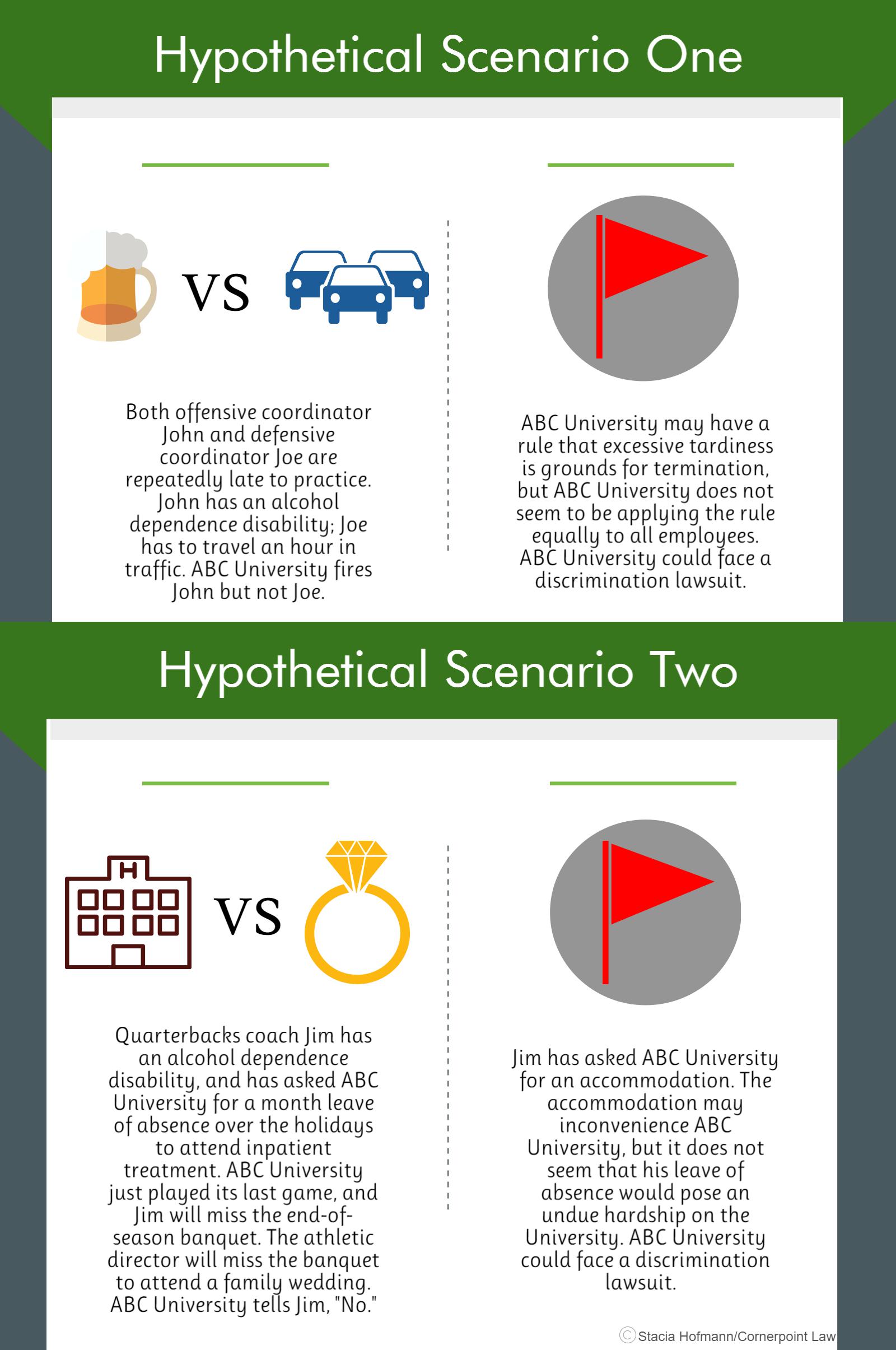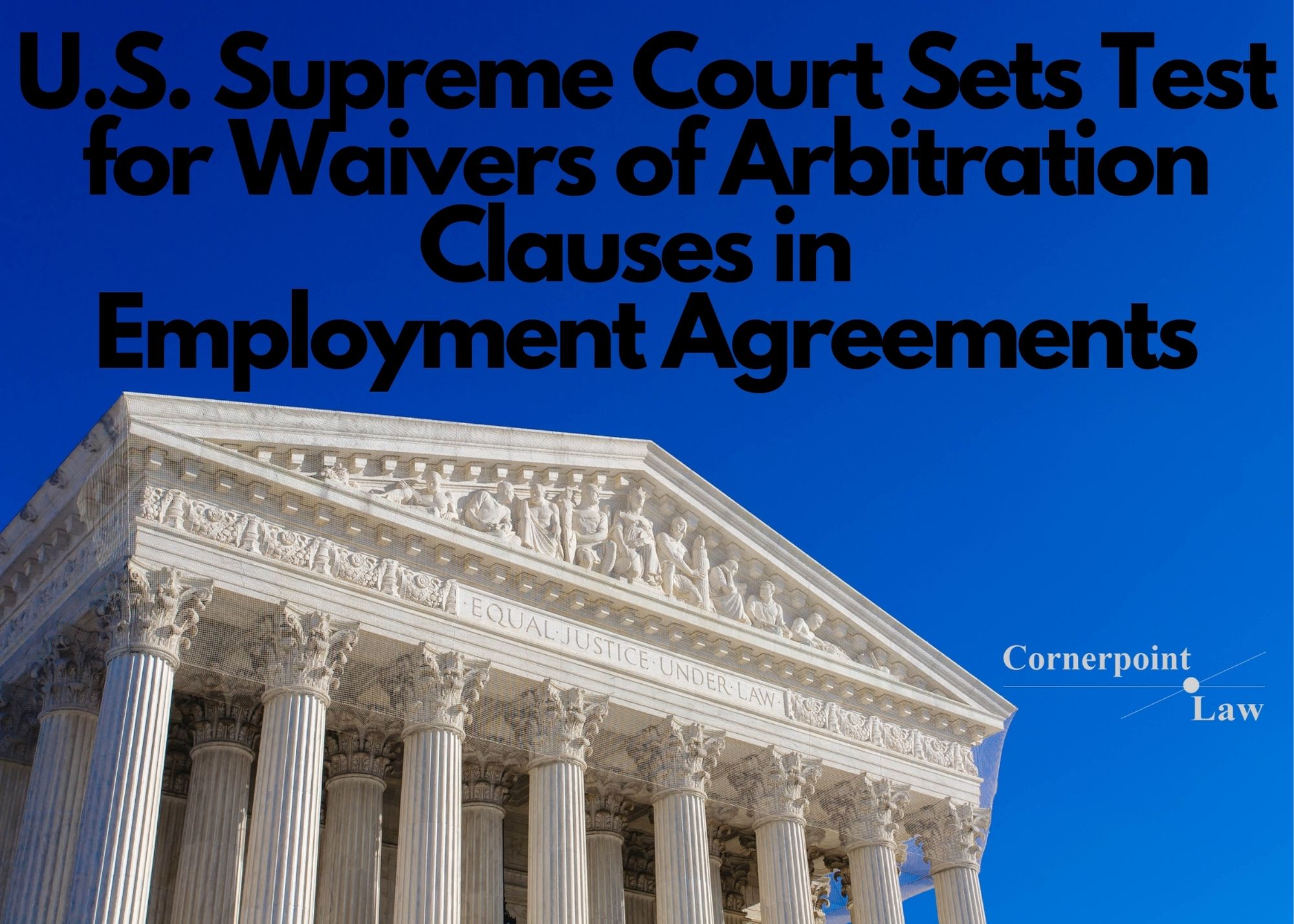The Playbook: Disability, Misconduct, & Accommodation
June 9, 2016
Unauthorized use and/or duplication of blogposts without express and written permission is strictly prohibited. Excerpts and links may be used, provided that full and clear credit is given, and with appropriate and specific direction to the original content.
The author of this post can be reached by phone at 206-693-2718 or by email.
Legal Lessons Learned from Steve Sarkisian & USC
Part Three: Tied at Halftime
by Stacia Hofmann
Welcome to the third installment of my blog series using former University of Southern California head football coach Steve Sarkisian’s legal claims against USC as launching points to discuss Washington law on similar topics.1
Sarkisian claimed that USC should have accommodated his efforts to seek treatment for an alcohol dependence disability; USC denied Sarkisian asked for an accommodation. USC also claimed that Sarkisian denied that he had a disability, and that it terminated Sarkisian because of misconduct.2 I am following last month’s post about using employment agreements as a risk management technique with this discussion about legally-protected alcohol dependence disabilities.
In Washington, an employee claiming discrimination can look to the federal Americans with Disabilities Act (ADA) and/or the state’s Law Against Discrimination (WLAD). An employer cannot discriminate against an employee whose alcohol dependence meets the legal definition of a disability under the ADA or the WLAD. However, the employer may prohibit alcohol use in or at the workplace, and may hold an employee with an alcohol dependence disability to the same expectations and requirements as other employees.3 Generally speaking, the employer may terminate the employee if the employee’s alcohol dependence disability causes the employee to violate company standards or leads to misconduct but only if the employer would terminate an employee without an alcohol dependence disability for the same behavior.
If an employee has an alcohol dependence disability as defined by the ADA or the WLAD and asks for an accommodation to address his or her limitations, or the employer knows of the disability and that the employee is unable to make such a request, then the employer may have to provide an accommodation if it is reasonable and would not cause an undue hardship on the employer.
Businesses face legal risks when it comes to managing employees and complying with anti-discrimination laws. The following hypothetical scenarios demonstrate how the ADA and the WLAD can protect Washington employees. The first involves employee misconduct; the second involves an accommodation request.

As for the outcome of Sarkisian’s claims, we will likely never know. The case was transferred to arbitration and is no longer a matter of public record, and a settlement or award will probably be confidential. Next, I will be discussing the use of arbitration provisions in contracts in Washington.
This blog is for informational purposes only and is not guaranteed to be correct, complete, or current. The statements on this blog are not intended to be legal advice, should not be relied upon as legal advice, and do not create an attorney-client relationship. If you have a legal question, have filed or are considering filing a lawsuit, have been sued, or have been charged with a crime, you should consult an attorney. Furthermore, statements within original blogpost articles constitute Stacia Hofmann’s opinion, and should not be construed as the opinion of any other person. Judges and other attorneys may disagree with her opinion, and laws change frequently. Neither Stacia Hofmann nor Cornerpoint Law is responsible for the content of any comments posted by visitors. Responsibility for the content of comments belongs to the commenter alone.




